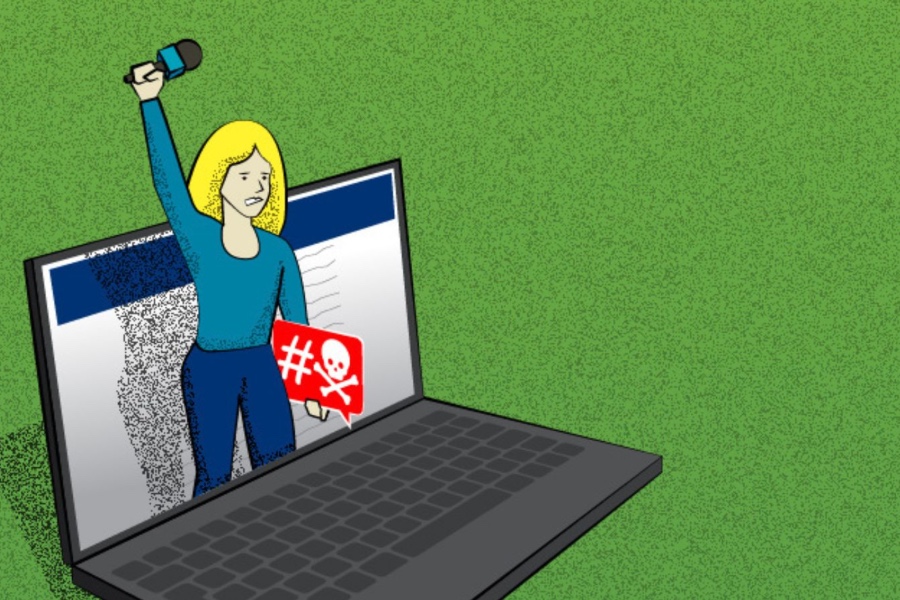Hundreds of journalists and civil society activists marched on Monday to Pristina’s main square to protest against the decision by the Kosovo government to suspend Klan Kosova TV’s business certificate, calling it as an attempt to curb the freedom of media.
Carrying a banner with the slogan “Democracy dies in darkness”, protesters called on the Ministry of Industry, Entrepreneurship and Trade to reconsider the decision.
“We see this decision as political and an interference in freedom of expression and freedom of the media in Kosovo,” said Nain Sadiku, a board member of the Association of Journalists of Kosovo.
“We ask the court to address Klan Kosova’s case in with right way, not being influenced by politics,” Sadiku said.
Klan Kosova has said it will take its case to court after the Ministry of Industry, Entrepreneurship and Trade three days ago rejected its complaint about the suspension of its business certificate last month.
But the ministry said that its commission, which reviewed the case, acted in accordance with the law when it suspended the certificate.
“The commission decision closes this case within the ministry while the complaining entity has the right to take the case to the court,” the ministry said in a statement.
The dispute started in June when news website Kosovanews published an investigation that suggested irregularities in Klan Kosova’s registration in Kosovo’s business registry.
The ministry then suspended Klan Kosova’s business certificate and initiated a criminal complaint against the company, its managers and officials from the Business Registration Agency on suspicion of misuse of office.
According to the decision, which was made public by the Association of Journalists of Kosovo, the ministry suspended Klan Kosova’s business certificate because the owners’ residential address is allegedly registered as “Peje-Serbia and Gjakove-Serbia… [which is] in violation with the basic principles of the constitution of the Republic of Kosovo”. Both towns are in Kosovo, not Serbia.
The Independent Media Commission, the institution responsible for the regulation, management and oversight of broadcasters in Kosovo, gave TV channel a month to correct the documentation, but on the final day, July 28, the ministry said that Klan Kosova failed to comply with the request.
Klan Kosova insisted on Monday however that it has corrected all the data in the business registry and accused the ministry of “fraudulently presenting a situation that does not exist”.
While Klan Kosova remains on air, the issue will be decided by a court after the TV channel announced it will file a legal complaint.
On Sunday, Prime Minister Albin Kurti intervened in the dispute, writing on Twitter that “following registration rules is a legal duty, not a ‘technicality’”.
“Enforcing such rules against a single violator does nothing to threaten media pluralism,” Kurti said.
“Media freedoms are vital: an attack on them is an attack on democracy. But democracy is also assaulted when powerful businesspeople break the law for financial gain. And enforcing the law against such people’s violations does not – in any way – constitute an attack on media freedom,” he added.
However, the Pristina embassies of the US, Germany, Britain, France and Italy in Kosovo – known collectively as the Quint – have expressed “deep concern” about the ministry’s decision.
“We are especially concerned that revoking Klan Kosova’s business licence is a disproportionate decision that will have repercussions on media plurality in Kosovo. The revocation of any media outlet’s license is a significant step requiring rigorous consideration,” the Quint said in a statement on Friday.




























